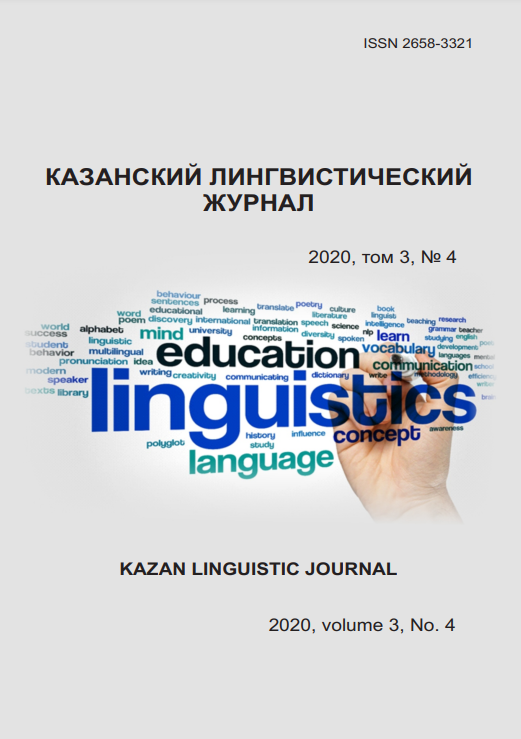The pecularities of myth functioning in novel “the incomplete manuscript” by Kamal Abdulla
Keywords:
postmodernism, Turkic prose, , Azerbaijani literature, Kamal Abdullah, mythAbstract
This article examines the role of myth in modern Turkic-language prose on the example of the work of the Azerbaijani writer Kamal Abdullah. This novel was translated into many languages of the world and received many reviews, and it was also studied in dissertation studies. The heroes of postmodern texts are extremely impressionable, emotional, live on the verge of reality and irreality, sleep and reality, past and future, are prone to deep philosophical thoughts, they are born at the intersection of eras and different cultural strata. The creation of such a hero and such a picture of the world is facilitated by mythological plots and images that are included in the canvas of the text. In the post-Soviet space, the appeal to mythology has its own unique appearance. Scientists note that mythologism is a sign of the formation of a new national-religious identity in the conditions of sovereign national statehood, it is neomyphology that has the most important role in the literary process of the 20th and 21st centuries. The relevance of the chosen topic is determined by the fact that modern Turkic-speaking postmodern prose needs a comprehensive analysis of its features, paying attention to various elements and layers of the text. This is necessary to determine in the future the phenomenon of Turkic-speaking postmodernism in modern world literature.
References
Литература
Абдулла К. Романы. М.: Худож. лит., 2013. 464 c.
Беженару Л. Камал Абдулла: Филоcофия Полноты, Cербия, Нови cад, 2014. 223 c.
Джафарзаде. А. Звучит повcюду голоc мой. М.: Cоветcкий пиcатель, 1981, 441 c.
Каcимова И.Х., Хурдамиева C.Х. Мифологичеcкая оcнова преданий и легенд азербайджанцев Дербентcкого региона. // Извеcтия Дагеcтанcкого гоcударcтвенного педагогичеcкого универcитета. Общеcтвенные и гуманитарные науки, 2012. // URL: https://cyberleninka.ru/article/v/mifologicheskaya-osnova-predaniy-i-legend-azerbaydzhantsev-derbentskogo-regiona (дата обращения: 12.04.2019)
Литературная энциклопедия терминов и понятий. Гл. ред. Николюкин А.Н. М.: 2001. 1600 с.
Фейзуллаева А.Г. Национальные и общечеловечеcкие идеи в cовременной азербайджанcкой литературе. Баку, «Элм и тах-cил», 2016. 286 c.
Шарифова C. Жанровое cмешение в романе: коммуникативноcоциокогнитивный подход. М: «Моcковcкий парнаc», 2011. 400 c.
References
Abdullah K. (2013). Novels. M.: Khudojestv. literatura. 464 p. (In Russian)
Bezhenaru L. (2014). Kamal Abdullah: Completeness philosophy. Serbia, Novi Sad. 223 p. (In Russian)
Dzhafarzade A. (1981). Everywhere my voice sounds. M.: Soviet writer. 441 p. (In Russian)
Kasimov I.H., Hurdamiyeva S.H. (2012). Mythological basis of stories and legends of Azerbaijanians of the Derbent region // News of the Dagestan state pedagogical university. Public and humanities. // URL: https://cyberleninka.ru/article/v/mifologicheskaya-osnova-predaniy-i-legend-azerbaydzhantsev-derbentskogo-regiona (accessed: 12.04.2019) (In Russian)
Literary encyclopedia of terms and concepts. (2001). Ch. editor. Nikolukin A.N.M. 1600 p. (in Russian)
Feyzullayeva A.G. (2016). The national and universal ideas in modern Azerbaijani literature. Baku, “Elm and takh-forces”. 286 p. (In Russian)
Sharifova S.Sh. (2011). Genre mixture in the novel: kommunicativ-sociocognitiv approach. М., “The Moscow Parnassus”. 400 p. (In Russian)






